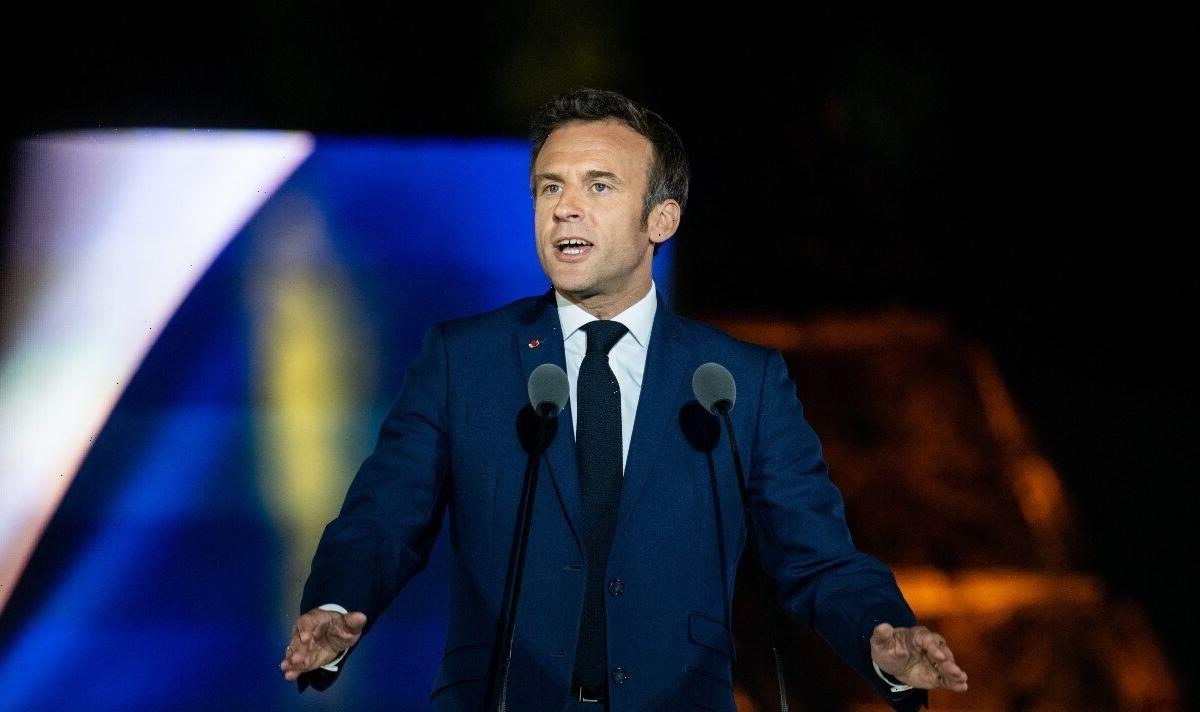France election: Le Pen concedes defeat to Emmanuel Macron
We use your sign-up to provide content in ways you’ve consented to and to improve our understanding of you. This may include adverts from us and 3rd parties based on our understanding. You can unsubscribe at any time. More info
Mr Macron, who secured his second term as French President in elections on Sunday, can partly attribute his success to his nuclear pledges. The French President included in his manifesto a plan to construct six European pressurised reactors (EPRs) by 2050. He also added an option for eight more pending further assessment.
Mr Macron also scrapped a plan to shut down 12 reactors by 2035 in a pledge made during his first election campaign, where he vowed to slash the country’s dependence on nuclear by 20 percent if he won.
But he is not the only leader orchestrating a huge nuclear drive.
Prime Minister Boris Johnson’s new energy strategy, published earlier this month, also involved a huge nuclear expansion to shore up Britain’s energy security.
It includes increasing nuclear power to 24GW by 2050, which would account for 25 percent of the projected electricity demand.
To do so, the Government has several major projects in the pipeline, with up to eight reactors that could be delivered by 2030.


But French-owned EDF has a huge role to play in the energy mix, already owning and operating eight nuclear power stations in the UK, with two more planned nuclear projects making headway too.
These include Hinkley Point C in Somerset and Sizewell C in Suffolk, which combined could generate about 6.5GW of power.
In the run-up to the French elections, Mr Macron said he would nationalise EDF, which is currently 84 percent state-owned, to finance the country’s nuclear revival.
He said: “Regarding the activities that are the most a question of national sovereignty, it must be considered that the state should retake capital.”
The French Government can expect to profit even further from the nuclear expansion the UK is poised to press ahead with.

The company has already been reporting soaring revenues in recent months.
From January to September last year, it got its hands on €57.1billion (£48billion), a 15.7 percent rise.
But the company has also been racking up a €41billion (£35billion) debt pile.
Because of this, Dr Paul Dorfman, an associate fellow at the University of Sussex, has warned of the dangers of placing too much reliance on France’s EDF.
He told Express.co.uk: “The UK has a very strong relationship with EDF, they own and run the substance of UK reactors and are helping to build Hinckley point and the rest of it.
DON’T MISS
Bulgaria and Greece break EU ranks with new nuclear plan [REPORT]
Macron wins big in new UK energy strategy – sparking fury [REVEAL]
Macron rubbing hands with glee as UK energy crisis means EDF pay day [INSIGHT]


“However, EDF are in debt. Moodys, the financial organisation has recently downgraded EDF’s credit rating.”
A quarter of all of France’s reactors are currently offline due to safety and security problems, that’s largely because they have an ageing nuclear fleet, like the UK.
“In order to kind of try to prolong their lifespan, the French government has big upgrade of their nuclear. The cost estimates are around £70-80 billion just to upgrade, just to keep them tottering on.”
According to a plan seen by Bloomberg, EDF could divest stakes in some overseas holdings to help raise the funds for key nuclear and hydroelectric operations in France.
In 2020, EDF produced 37,968GWh of zero-carbon electricity, which made up around 30 percent of the net zero electricity generated in the UK.
As well as the nuclear power monopoly the French company controls in Britain, it also has 36 wind farms, as well as the largest battery storage facility in Europe.
Source: Read Full Article
